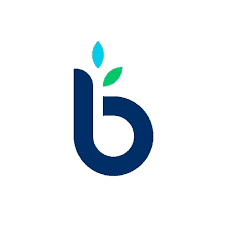
Need help getting funds? Get matched with lenders instantly
Answer some basic questions in less than 3 minutes with no impact to your credit score and compare multiple offers. No commitment, no hassle.
Get Matched💳 Save money on credit card processing with one of our top 5 picks for 2025
Applying for a loan can feel daunting. Here is a guide to the requirements and qualifications needed to acquire business funding.
Before applying for a business loan, it’s important to understand what lenders look for.
This guide breaks down how lenders evaluate loan eligibility and the documents you’ll need to prepare, so you can move through the process confidently and secure the funding your business needs.
Table of Contents
To assess risk, lenders commonly rely on a framework known as the 5 C’s of Credit.
Lenders use these factors to gauge overall risk. Lower risk improves your chances of approval, better rates, and higher borrowing limits, while higher risk can limit options or increase costs.
Applying for a business loan is much simpler when you know what lenders expect. Below are the key details and documents most lenders require.
You’ll need to specify how much you want to borrow. Before applying:
Lenders require a clear explanation of how funds will be used. Common purposes include:
Some lenders restrict how funds can be used, so review terms carefully.
Your personal credit score plays a major role in approval, rates, and terms.
Before applying, pull your free credit score and credit report, review for errors, and dispute inaccuracies if needed.
Most traditional lenders prefer businesses with at least two years in operation. Startups may face stricter requirements, fewer options, or additional documentation requests.
Revenue helps lenders assess your ability to repay.
Bank statements provide insight into cash flow and financial management. Most lenders require at least three months, though banks and SBA lenders often require six months or more.
A debt schedule outlines your existing loan obligations and monthly payments. Lenders use this to evaluate whether your business can handle additional debt.
You’ll need to verify ownership using business licenses, registrations, or formation documents.
Some loans require collateral or additional risk protection, which may include:
Always review collateral terms carefully before accepting a loan.
Most business loans require basic information, such as bank statements and a federal tax ID. Depending on the loan type, lenders may also ask for additional documentation.
Applying for a business loan is much easier when you’re prepared. Knowing how much funding you need, how you’ll use it, and what your business can afford puts you ahead of the process.
Having the right documentation ready and understanding what lenders look for can help speed up approval and improve your chances of securing the loan you need.
Want to help shape the future of the Merchant Maverick website? Join our testing and survey community!
By providing feedback on how we can improve, you can earn gift cards and get early access to new features.
 Our expert reviewers found BusinessLoans.com to have a quick and easy application process alongside excellent support and guidance for borrowers.
Start A Quick Application
Our expert reviewers found BusinessLoans.com to have a quick and easy application process alongside excellent support and guidance for borrowers.
Start A Quick Application
Help us to improve by providing some feedback on your experience today.
The vendors that appear on this list were chosen by subject matter experts on the basis of product quality, wide usage and availability, and positive reputation.
Merchant Maverick’s ratings are editorial in nature, and are not aggregated from user reviews. Each staff reviewer at Merchant Maverick is a subject matter expert with experience researching, testing, and evaluating small business software and services. The rating of this company or service is based on the author’s expert opinion and analysis of the product, and assessed and seconded by another subject matter expert on staff before publication. Merchant Maverick’s ratings are not influenced by affiliate partnerships.
Our unbiased reviews and content are supported in part by affiliate partnerships, and we adhere to strict guidelines to preserve editorial integrity. The editorial content on this page is not provided by any of the companies mentioned and has not been reviewed, approved or otherwise endorsed by any of these entities. Opinions expressed here are author’s alone.
 Our expert reviewers found BusinessLoans.com to have a quick and easy application process alongside excellent support and guidance for borrowers.
Start A Quick Application
Our expert reviewers found BusinessLoans.com to have a quick and easy application process alongside excellent support and guidance for borrowers.
Start A Quick Application